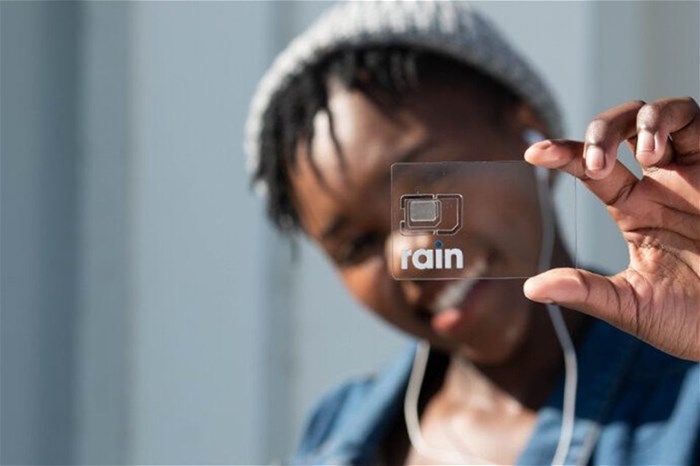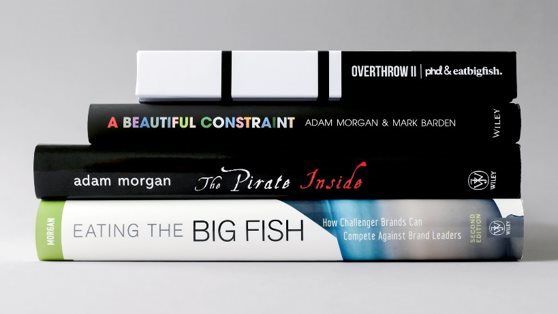
Top stories





Energy & MiningGlencore's Astron Energy gears up with new tanker amidst Sars dispute
Wendell Roelf 13 hours

More news

















Logistics & Transport
Uganda plans new rail link to Tanzania for mineral export boost











In South Africa, data prices have historically been excessively high, and the majority of the population have had to resort to disproportionately high rates for data to access the internet. This, coupled with data expiration issues, left a gap in the mobile communications category that begged to be filled.
The top two mobile communications players in South Africa, MTN and Vodacom, collectively own more than 80% of the market. The third player Cell C accounts for a further 15%. It’s a tough market to enter considering the dominance of the main players and the investment required just to get noticed. The one thing that this duopoly has produced is a proliferation of opaque tariff-based propositions in the aggressive search for new customers and desperate attempts to reduce churn.
While the bright side of this might be ‘more choice’ for consumers, Rain, a challenger offering 5G, data-only SIM cards, has held this up as the category ‘monster’ to challenge, in launching its offering with only one plan.
Driven by making data more affordable and transparent for more South Africans, Rain offers no bundles, no contracts, no limits and the clincher for many – no expiry dates. “Data is a human right,” Rain’s co-founder Michael Jordaan told 702, “it costs too much in South Africa”.
One of the key tenants of being a challenger brand is the bravery to make sacrifices so that one can overcommit elsewhere. As a mobile virtual network operator (MVNO), Rain has sacrificed the benefits in infrastructure ownership and retail presence (Rain purchases are available online only and are delivered directly to customers). By doing this it’s able to overcommit on better quality connection and faster data. In addition, it can invest in value-added services like e-SIMs and the online simplification of complex manual compliance requirements in the sign-up process (e.g. RICA - the South African regulatory requirement governing electronic communications that prove painful to the consumer).
Solving another hot topic, Rain customers only pay for data they have used at the end of a month, their data will never expire and customers never have to pay expensive out-of-bundle rates.
Some might argue that Rain is hamstrung by limited subscriber volumes but it is brewing a grand plan. The network operates in all major metropolitan areas, with 3,200 4G sites (noted, not without capacity problems). It plans to expand to 5,000 over the next two years and within four months of launching its commercial 5G network, Rain already carries 250 sites – almost equal in size to the two largest fibre network operators in South Africa – with ambitions to accelerate to 700 5G sites within a year.
A large part of Rain’s future success lies in how quickly it can lower distribution costs and manage scaled growth to keep its offering affordable and deliver better quality connectivity.
Rain amplifies its challenger stance by linking its positioning directly into a systemic social problem, that of socio-economic development. With the belief that affordable, fast broadband is key for the country to revive economic growth, Rain is committed to playing a key role in building South Africa’s 5G and 4IR ecosystem, reducing unemployment and improving education. They’ve already started partnering with Wits University and Huawei Technologies to establish a 5G Innovation Lab and provide free data to over school-children giving over 25,000 young South Africans a head-start. “The more data our people consume, the better it is for the economy, the more people who have access to the internet, the better it is for the economy,” Jordaan told Biz News, “we’re trying to play a constructive role in the economy and hopefully, build a really good business in the process.”
In making data more accessible and affordable, Rain offers a refreshing way to stand up for the customer and is creating precipitation for national growth.
If Rain wins, South Africa wins.

eatbigfish. is a strategic brand consultancy whose unique focus is challenger thinking and behaviour. Our expertise is grounded in The Challenger Project – our study of how challenger brands succeed by doing more with less.
We act as catalysts rather than consultants and, through our collaborative approach, we provide inspiration and frameworks that enable ‘would-be’ challengers to deliver breakthrough solutions for their teams and brand.
If you would like to speak to someone please call or email our local representative for Africa Middle East: Delta Victor Bravo (Pty) Ltd
Contact David Blyth – moc.hsifgibtae@divad
Telephone: +27 71 483 8514